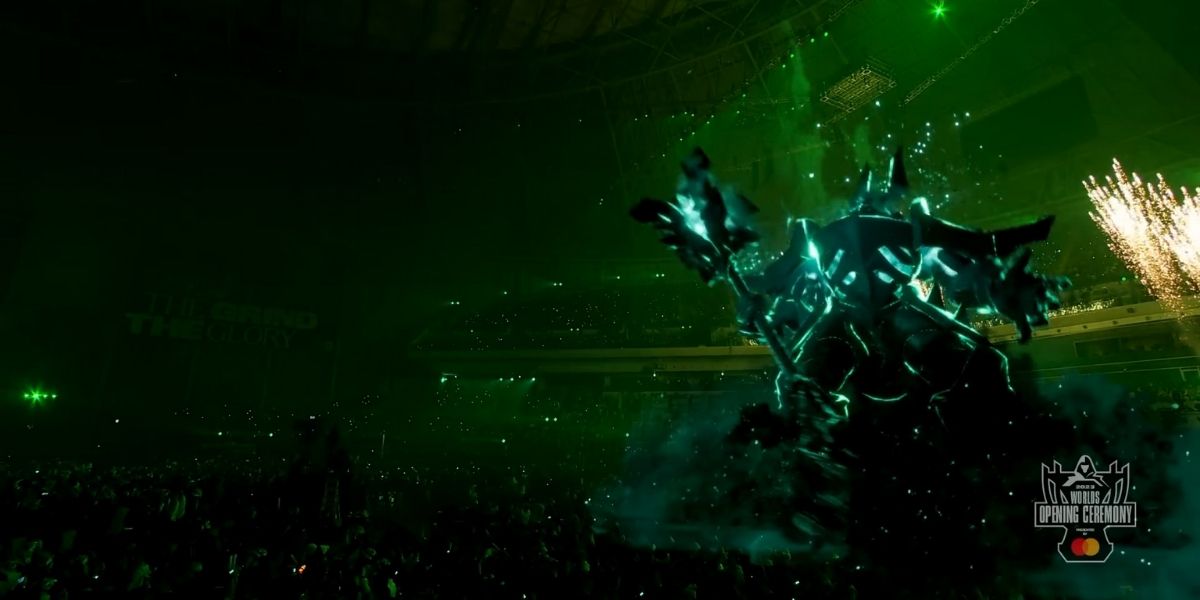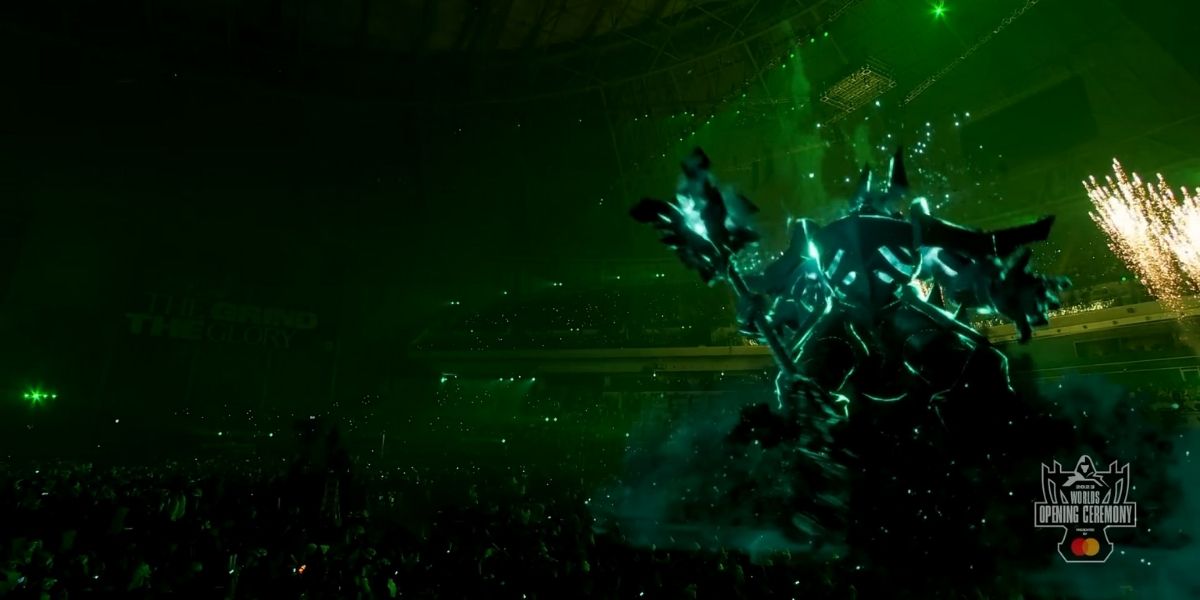
Lux Machina Consulting, leading specialists in virtual production and authorized service partners of Stage Precision, successfully completed work on the Riot Game’s League of Legends World Championship e-sports competition. By integrating Stage Precision’s top tier SP software into their operating systems, they were able to smoothly coordinate a multi-faceted AR production.
“In our operations at Lux Machina Consulting, we’ve experimented with a variety of tracking tools,” shared Wyatt Bartel, the company’s VP of Production. “A majority of these workflows are proprietary, restricting us to specific manufacturer’s packages. Our journey with Stage Precision began when we were looking for a stable platform to streamline our camera tracking routines in film, television, and live event markets. Their lens calibration features and the Shield plug-in were exactly what we needed – an application that merges data from numerous sources.”
For the League of Legends project, Lux Machina Consulting selected a variety of tracking solutions, like the Mo-Sys optical tracking data system, a monitored cable camera, and a SuperTechno crane. However, they required a tool to establish a general link between data sources with offsets and profiles, and SP emerged as the perfect answer. “SP gave us a workspace to monitor the inflow and outflow of data,” explains Jeptha Valcich, a camera tracking specialist. “Having this visual overview of data allows the camera tracking team to operate separately from the technical team, facilitating better organization in projects.”
SP was compared to an all-encompassing filter by the production team when managing data control and distribution. “We utilized SP as a central tracking mixer, ingesting all our data, modifying it before exporting it,” said Xander De Jong, a Camera Tracking Specialist from NEP Group Netherlands. “SP let us access all the 3D data, sync or delay the data, and send it over to the Unreal Engine.”
Release of version 1.1.0 of SP in September 2023 introduced new features for camera and lens calibration which proved crucial during the production in Seoul. “Our team used SP to create lens profiles for all our cameras. SP provided us with a platform for pulling in the data, tweaking it and regulating the height of the cameras,” De Jong recounted. “Without it, we couldn’t have combined these data packets.”
The lens calibration procedure within SP marked a notable change from previous tracking workflows, offering Lux Machina a user-friendly and adaptable solution.
“SP gives us a single, definitive source with the capability to comprehend the whole data as signals come in and out. It’s fascinating to notice the variances in the data flux and being able to observe data as a visualized representation helps us to synchronize the different tracked systems in use. SP’s daily system startup lets us steer our calculations in an expected, visual manner, helping us avoid dirty data and mistimed frames,” Bartel shared.
When compared to prior workflows, Lux Machina Consulting acknowledged the benefit of being able to generate unique tracking profiles and the system’s openness. “Stage Precision has liberated what others prefer to keep under lock and key. Native software allows decent functionality, but SP offers significantly more,” Bartel reflected. “Additionally, the quick and responsive customer service is commendable.”
Moving forward, Lux Machina Consulting expects Stage Precision to continuously improve its software. “SP offers us the capability to do more. It allows us to involve more cameras, other types of cameras, and integrate different technologies into productions, which were previously excluded due to lengthy setup times. A case in point is the use of about 25 cameras in the League of Legends project. With SP in our processes, we can convert more of those into AR or XR cameras. I’m confident that the easy setup provided by SP will significantly advance the XR industry,” Bartel concluded.
